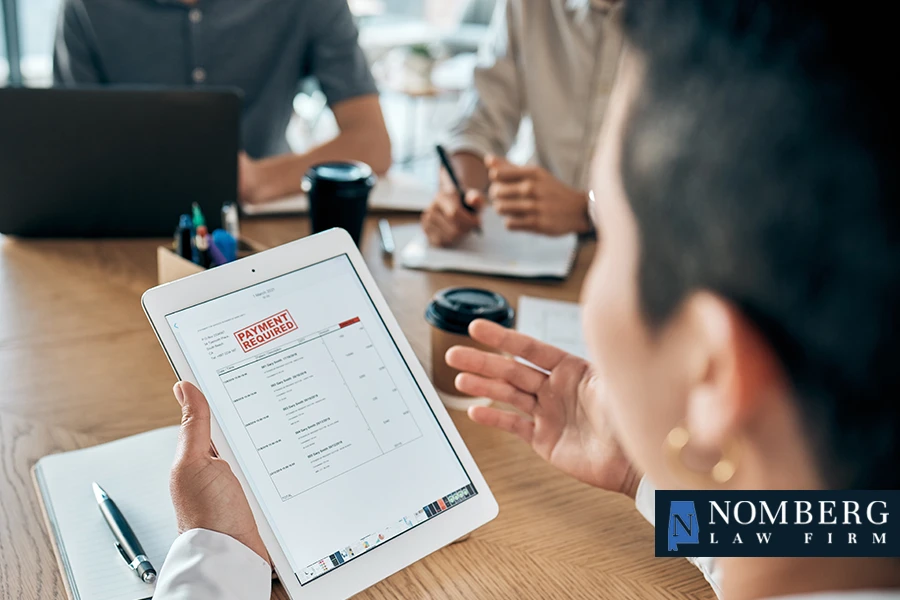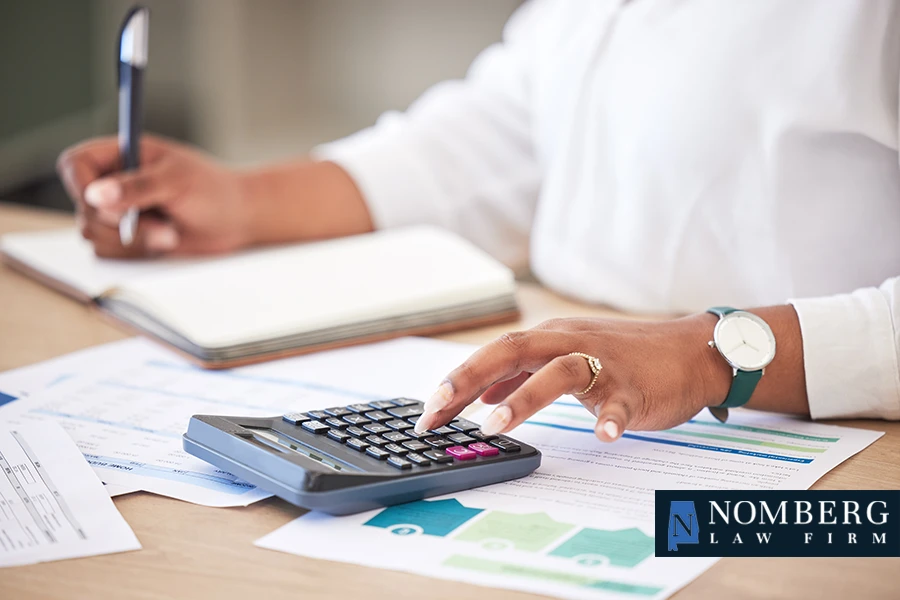Bankruptcy is a legal solution to overwhelming debts. Filing for bankruptcy is among the difficult decisions you will ever make. When you file bankruptcy, your goal is to receive a discharge, which releases you from personal liability for specific debts and prohibits bill collectors from taking any action against you to collect the debt.
If you are struggling to pay your debts and concerned about the future welfare of you and your family, seek the advice of a trustworthy bankruptcy attorney.
An experienced attorney can ensure that your assets are protected and the debts are dischargeable.
Seven myths about filing for bankruptcy
Meet Your Bankruptcy Attorney, Steve Altmann
“I am a bankruptcy attorney in Birmingham, AL. For over 30 years, I have helped individuals, families, and business owners file for bankruptcy relief so they can get a fresh start.
If you have never been through bankruptcy, the process may be confusing and intimidating. I will explain the process and help you identify which type of bankruptcy solution is right for you.
Let’s set up a time to talk. You’ll learn how bankruptcy can stop the calls and erase debt you no longer want to carry.”
Which bankruptcy chapter is right for me?
How does bankruptcy work?
Bankruptcy Q&A with Steve Altmann
There are three ways to obtain a bankruptcy discharge:
- Chapter 7
- Chapter 11
- Chapter 13
All of our clients are different, but they have a lot in common. They want to be free from debt collectors hounding them for money they simply don’t have.
Our clients are looking for freedom…financial freedom from overwhelming debt. To them, we offer a solution. We help them gain control of their finances, offer financial freedom and peace of mind. It’s the one thing everyone can use some more of in their life.
If you could be in control of the outcome of your legal case and secure your financial stability, wouldn’t you want to take the first step towards a new beginning?
We help people get out of debt. Talk to our attorney today.
Verdicts & settlements
compensation case
collision case
case settlement
Reviews & testimonials
Find out what our clients are saying about us



What is Chapter 7 bankruptcy?
Chapter 7, also known as a “straight bankruptcy”, contemplates an orderly liquidation of your assets by a court-appointed trustee who will then make distributions to your creditors or the people you owe.
Immediately upon filing the Chapter 7 bankruptcy case, you are shielded from all collections by your creditors.
Your creditors are notified as soon as your Chapter 7 bankruptcy case is filed. At this point, they must stop all harassing phone calls, harassing letters, garnishments, repossessions, and foreclosures.
What is Chapter 7 in bankruptcy?
This immediate protection from your creditors is one of the most important benefits of a Chapter 7 bankruptcy filing. As a debtor in Chapter 7, you can retain secured collateral, such as houses and cars, by reaching voluntary reaffirmation agreements with a specific creditor.
If you reaffirm a debt, you are recreating that debt that would have been extinguished and continue to make your regular monthly payment.
Individuals and married couples are also entitled to exemptions, which allow you to retain clothing and personal property, like household goods and furnishings, and protect your house equity.
In Alabama, individuals are allowed a $15,500 homestead exemption on their residence or $31,000 of equity for married couples and $7,750 personal property exemption or $15,500 for married couples. Based on certain factors, it is possible to have substantial additional equity over and above these exemption amounts and still retain possession of your home and personal property.
We can discuss this in more detail during your FREE initial consultation.
We help people get out of debt. Talk to our attorney today.
Am I eligible for Chapter 7 filing?
In your consultation, one of the first things we will analyze is your household income and expenses to determine whether you pass the “Means Test” to qualify for Chapter 7.
If your debts are primarily consumer debts and your income exceeds certain thresholds, you may not be eligible for Chapter 7 relief.
What’s the cost of filing Chapter 7?
If you qualify for Chapter 7 bankruptcy and decide to file, you must pay the attorney fees and court costs before the filing of the bankruptcy case. We can work out installment payments on your Chapter 7 bankruptcy fees.
A married couple filing a joint case only pays one fee and one set of filing fees. After evaluating your circumstances, we can give you a quote for the fees in your case and explain how you can rebuild your credit after filing for bankruptcy.
We look forward to assisting you in regaining control of your financial situation.
What is Chapter 11 bankruptcy?
What is the Small Business Reorganization Act and how does it benefit small businesses?
Rent deferral may be available to small businesses in Chapter 11 bankruptcy cases
Chapter 11 is a type of bankruptcy typically filed by a commercial enterprise or business that desires to continue operating a business and repay creditors through a court-approved reorganization plan. You continue to run your business under the supervision of the Bankruptcy Court and the Bankruptcy Administrator.
Individuals who have debt that exceeds the debt limit allowed for a Chapter 13 may seek to file a Chapter 11.
There is a new provision for Small Businesses to seek protection under Chapter 11 through Subchapter V (“Subchapter 5”) that operates similar to Chapter 13. The new provision is called the Small Business Reorganization Act. The goal of Chapter 11 is to propose a plan to reorganize your business and restructure your operations to return to profitability.
One example of this may be a company with several locations that need to reject a lease and close an underperforming location to save profitable locations. A Chapter 11 plan will also allow you to establish new payment terms and discharge unsecured debt.
When it comes to filing for Chapter 11 bankruptcy, nothing is more important than having a solid legal team behind you. At a personal and professional level, we can be your trusted advisors. With our help, you can overcome debt and start the new business chapter.
Due to the complexities of Chapter 11 bankruptcy filing, our firm charges for an initial consultation to analyze your business financial situation.
What is Chapter 13 bankruptcy?
Chapter 13, also known to some as “debtor’s court,” is designed for an individual debtor who has a regular source of income. Chapter 13 is often preferable to Chapter 7 because it enables you to stop a foreclosure and keep a valuable asset, such as your house.
A typical Chapter 13 lowers your monthly payments to creditors. It allows you to eliminate interest and late fees on credit card debt.
Debts that can be paid through a Chapter 13 plan include:
- Car loan payments
- Mortgages
- Credit cards
- Medical bills
- Taxes
- Student loans
- Payday loans
- Child support arrearages
What is Chapter 13 in bankruptcy?
Chapter 13 allows you to propose a “plan” to repay creditors over time – usually three to five years.
You repay your debts through a trustee based on your anticipated income over the life of the plan. Steve Altmann, your local Birmingham bankruptcy attorney, will help you formulate a payment plan designed to be confirmed by the court.
Your first payment is due within 30 days of the date of filing. You must maintain your payments monthly to avoid having your case dismissed.
How does Chapter 13 bankruptcy work?
Eliminate high-interest loans
Chapter 13 bankruptcy allows you to discharge the high-interest debt.
For example, suppose you have high-interest credit card debt, high-interest loans, or high-interest payday loans. You can pay your creditors through your 60-month plan at a zero percent interest rate.
If you have a vehicle loan with a high-interest rate, it is possible to substantially lower the interest rate, often as low as 5 or 6 percent.
Stop foreclosure or repossession
You could file a Chapter 13 bankruptcy case, stop the foreclosure or repossession, and cure the default over an extended period of time.
This would allow you to have a manageable payment.
Stop wage garnishments
Filing a Chapter 13 bankruptcy case will immediately stop a garnishment by the IRS, State, or a Judgment creditor. This will stop the creditor from taking your money until a repayment plan is in place.
When you pay your tax debt through a Chapter 13 bankruptcy, the debt typically no longer incurs interest or penalties during the life of the case. If you successfully complete your Chapter 13 case, you will not have to pay this interest or penalties.
A Chapter 13 bankruptcy case is a powerful tool to help you and your family reorganize household bills to a manageable level. Our attorney has helped hundreds of people from losing their cars and homes and successfully reorganized these debts to establish good credit standing.
Chapter 13 – Low up-front cost bankruptcy option
What’s my cost for filing Chapter 13?
When you file for Chapter 13 bankruptcy, most of the attorney fees and the filing fee are combined with your other bills.
Once you call our office and discuss your situation, we will be able to tell you what your initial fee will be to file your case.
Chapter 13 versus Chapter 7, what’s the difference?
Unlike Chapter 7, you do not receive an immediate discharge of debts. You must complete the payments required under the plan before you receive a discharge.
Under Chapter 13, you are, however, protected from lawsuits, garnishments, and other creditor actions while the plan is in effect. You can also eliminate more debts in a Chapter 13 than in a Chapter 7.
The discharge is also somewhat broader (i.e., more debts are eliminated) under Chapter 13 than the discharge under Chapter 7.
We help people get out of debt. Talk to our attorney today.
Related video resources
What do you do if a family member passes away in the middle of their bankruptcy case?
How much debt do I need before I can file for bankruptcy?
Title pawn loans



